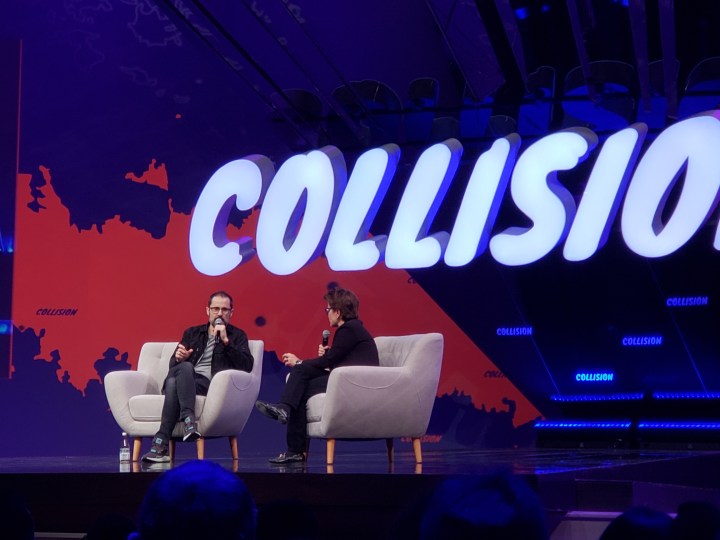
There’s a narrative in the world at large: Social media is evil, leading to a mental health crisis in Generation Z, aiding foreign governments in influencing the elections, supporting a rise in hate speech. But there’s light at the end of the tunnel, according to Ev Williams, who ought to know. After all, he co-founded Twitter. But weaning ourselves off today’s social media won’t be easy.
“It’s like a sugar high — and now we’re like oh, do we need this in our lives in the same way?”
On stage at the 2019 Collision conference in Toronto, Williams spoke Tuesday with noted journalist Kara Swisher, a co-founder of Recode and a New York Times columnist.
“[Social media] is in the bleakness of figuring out where it needs to go. I don’t have any answers for how we get out of the current situation,” Williams said, noting that “it amplifies all the bad aspects of humanity.” But he’s sure there’s a way out, somewhere down the line: “There is a better version of social media to be invented. I don’t know if that will happen incrementally … or if it will happen with completely new paradigms to come around. But it will happen,” he said.
That path may lie through new platforms and new ways of communicating, such as Medium, the site Williams founded after Twitter and continues to tinker with — though perhaps not 63 times in the last year, as Swisher joked. Most recently Medium has pivoted to subscriptions, as have many publishers, something Williams says is going very well for Medium. But subscriptions are inherently challenging: How many services do you want to subscribe to, after all?
“Every publisher is putting up paywalls and subscriptions and it seems very clear that people aren’t going to subscribe to dozens, just like they don’t subscribe to every TV show they watch or every musician,” Williams said.
The future for social media and the media world at large remains very much in flux, in other words, though Williams said he is still very optimistic about media. There were rumors that he considered investing in New York Magazine, which he acknowledged with a smile.
.@karaswisher: "There was a rumor you were looking at New York Magazine. Is it true?"@ev : "It's true, there was a rumor that we were looking at New York Magazine."#CollisionConf #Collision2019 pic.twitter.com/0c62AJXc7Q
— Jeremy Kaplan (@SmashDawg) May 21, 2019
Meanwhile, Williams looks to support startups and innovators through venture capital funding, with a nod toward companies that can have a positive social impact.
“We invest in what we call ‘world-positive investing,’ things that address big, systemic problems in society,” he told Swisher. Companies in the health space, wellness, and even food. Williams invested in Beyond Meat, for example, one of many companies aiming to create meat substitutes through science. He called it a “phenomenally lucrative” investment. He also sees an effort to fight the homogeneity of the investment world, which is very much white and male.
“In my 20 years of building companies in Silicon Valley, the focus on diversity and inclusion in the last five years is an order of magnitude higher, and it’s changing how we invest, how we hire … and we have a long way to go,” Williams said.
“And the numbers still don’t bear out,” Swisher added.
Clearly, there’s still work to do.



